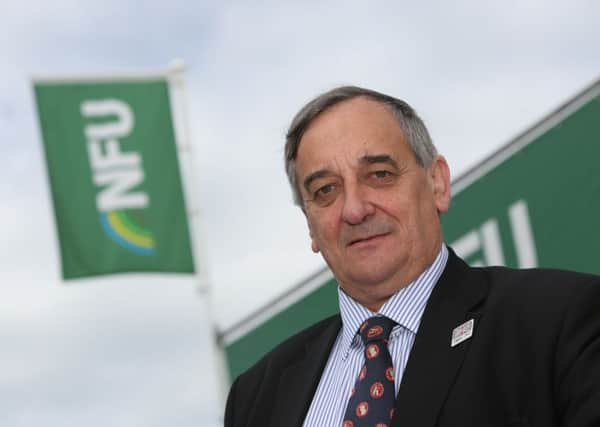Slow burning currency impact expected to hit farm finances


A weaker pound following the referendum decision last June has given most agricultural sectors an uplift, however that same factor is set to catch up with the sector, industry consultants said.
Output prices have recorded an average annual growth of more than 25 per cent, according to a report by land agents Carter Jonas. Milk prices saw the greatest increase, with prices rising by 7.5 per cent over the last quarter.
Advertisement
Hide AdAdvertisement
Hide AdNonetheless, margins for many farm enterprises are forecast to be lower than six months ago, largely because of the inflammatory effect the currency weakness has on inputs.
Increases in prices have already been seen in the cost of fuel, fertiliser and animal feed. The cost of fertiliser, for example, has rebounded back to its mid-2015 peak, reaching £241.5 per tonne, up 38 per cent on the last quarter, Carter Jonas reports. However, higher costs in other areas are still to come and will be felt by farms over the coming months and into 2018, warned Agro Business Consultants (ABC).
Whilst most agricultural outputs are commodities and their price change almost instantly when currency moves, the many inputs into farming are products or services and their prices are only adjusted periodically, perhaps just once a year in the case of labour.
Richard King, editor of ABC Publications and head of business research at The Andersons Centre, said: “Although output prices are better in many sectors, the focus of the farming industry needs to remain on cost control and developing low-cost production systems.
Advertisement
Hide AdAdvertisement
Hide Ad“In the short-term this will allow the maximum benefit of better market conditions to be realised. Longer-term, it will make business more robust in the face of the many uncertainties that Brexit will bring.”
The results of a survey carried out by the National Farmers’ Union (NFU) suggests that many farmers are nervous about their prospects over the next three years.
An 18-point drop in confidence levels was recorded since 2015, with the political environment since the Brexit vote blamed by the NFU as a key driver for the fall.
Meurig Raymond, the union’s president, said: “Farmer confidence is absolutely critical to the future of a profitable and productive food and farming sector. In such a period of uncertainty politically, we need politicians to fully understand the impact this lack of clarity is having economically.”
Advertisement
Hide AdAdvertisement
Hide AdMr Raymond added: “The outlook from farmers is positive for the next 12 months due to the weak sterling, but we all know farming businesses are long-term and cannot rely on currency fluctuations.”
As Britons prepare to go to the polls tomorrow to cast their votes in the General Election, Mr Raymond said: “The Government elected later this week will need to take firm action to maximise on the future potential of British food and farming.
“We need a competent and reliable workforce, a fit for purpose domestic agricultural policy and the right trade deals. And to address this debilitating uncertainty, they need to give the industry as many assurances as possible.”